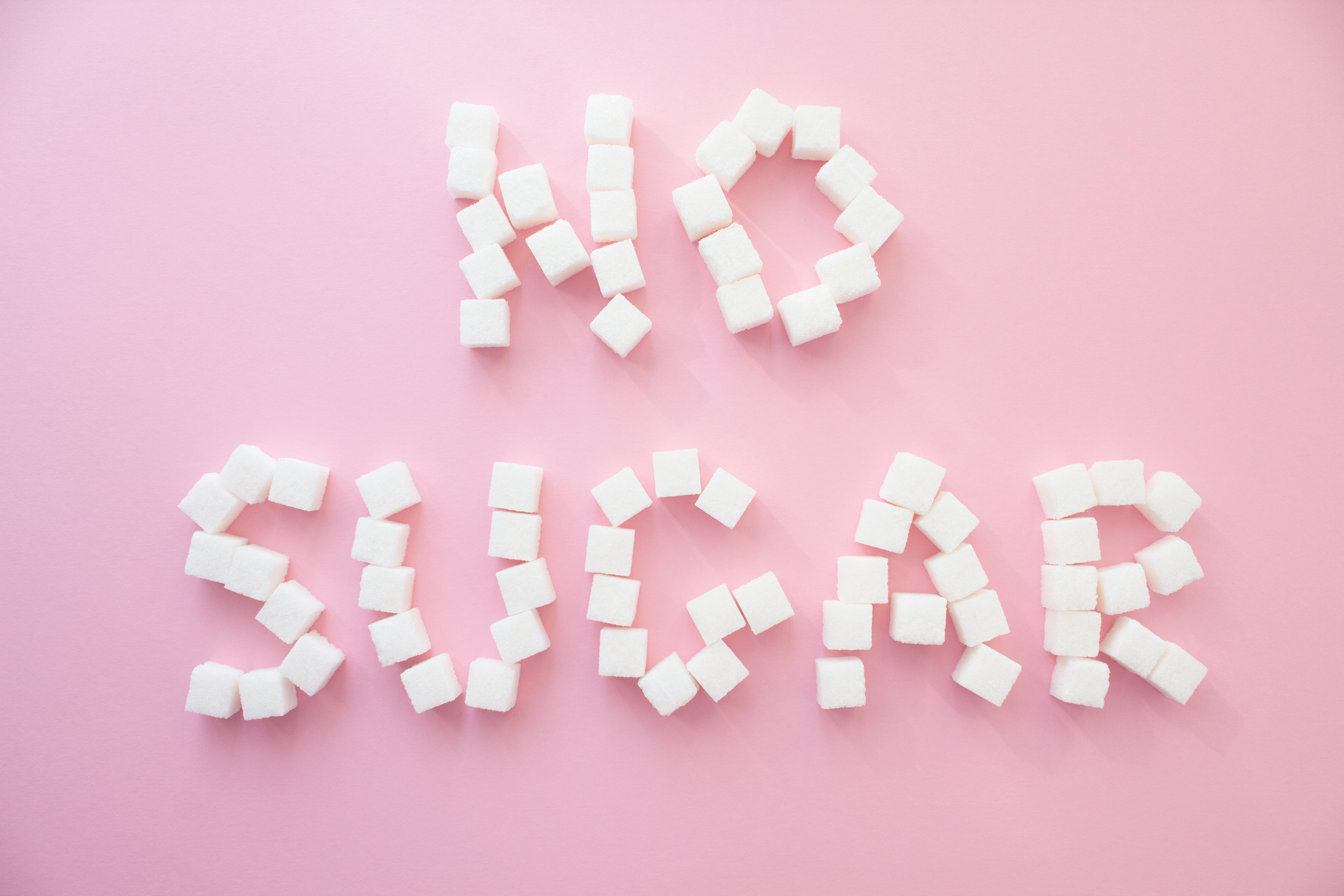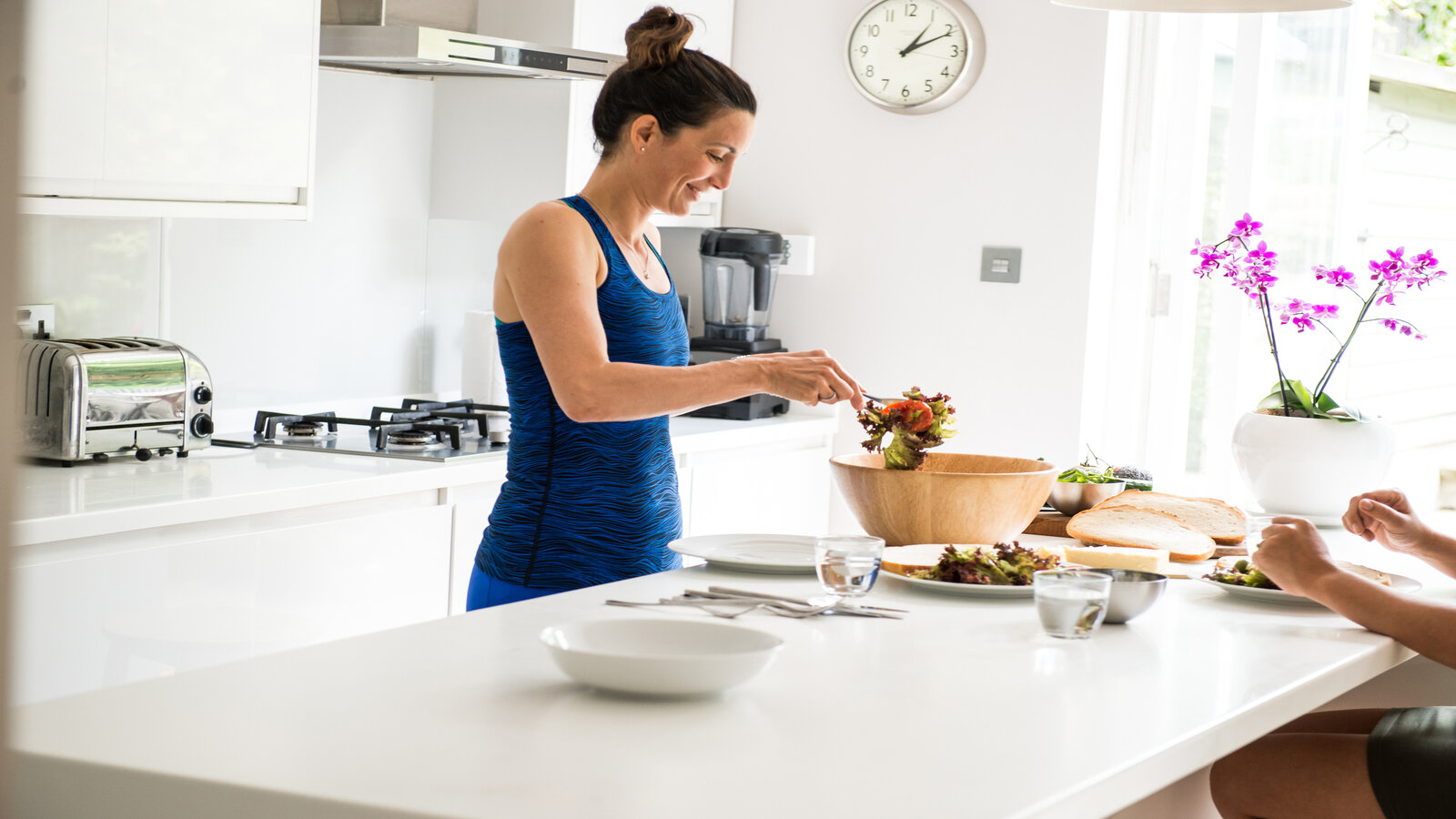6 simple ways to succeed on the no sugar diet, according to Dr Michael Mosley
The diet expert offers his top tips on waving goodbye to sugar - for good

It’s a familiar scene: the empty chocolate box, the litter of sweet-wrappers, the feelings of never-again, tinged with an underlying desire for more. We don’t need scientists to tell us how addictive sugar is.
But there are ways to crack the sugar habit and stick to a no sugar diet, says Dr Michael Mosley. Here are four easy to remember tips from him and his medical team to help beat the cravings and beat sugar cravings. It doesn't have to be difficult. Just follow these quick and easy rules to help avoid the sweet stuff and keep sugar cravings at bay.
1. Go full fat
Always chose the full-fat option - low fat generally means all the good stuff has been removed and has been replaced with sugar and additives. Full-fat products will keep you feeling fuller for longer and are great for a no sugar diet.
2. Drink water
Soft drinks and fruit juices contain a large amount of sugar. If you feel like mixing it up, try sparkling water with a wedge of lemon and some cucumber.
3. Read food labels
There are many sources of hidden sugars and it’s important to check the label to see just how much sugar you’re consuming. You may be surprised about what you can't eat on a no sugar diet, even staples like bread often have sugar in them.
4. Cook meals from scratch
If you cook it yourself, you can be 100% certain you aren't consuming sugar. We recommend batch cooking and freezing so that it's not tempting to cheat when you're tired at the end of a day.
Why not try Eric Lanlard's gluten free and sugar-free carrot and coconut cake recipe to kick things off? Or for something savoury how about this filling butternut squash soup recipe, packed with natural sweetness?
Sign up to our free daily email for the latest royal and entertainment news, interesting opinion, expert advice on styling and beauty trends, and no-nonsense guides to the health and wellness questions you want answered.

5. Sleep more
A lack of sleep drives up levels of the stress-hormone cortisol, which can lead to chronically increased blood sugar and insulin resistance, which in turn sets us up for obesity. Sleep deprivation also directly increases your levels of ghrelin, a hormone that increases appetite, and drives down levels of leptin – a hormone that creates a sense of fullness.
6. Try mindfulness
As we have seen, the relationship between food and the human mind is not straightforward. Even within the brain itself, we have to cope with conflicting signals: Reward-circuits, laid down at the very start of our lives, urge us to tuck into 2:1 carb-to-fat foods, especially when stressed; the front-brain, meanwhile, intervenes to make sure that we do not stuff ourselves into oblivion.
Mindfulness as a well-being practice works because the human mind continually generates impulses – some of which are useful, some of which are not. By performing daily mindfulness exercises, practitioners develop the ability to create a certain distance between the promptings of the mind, and the decision to act upon them.
Why sugar is addictive
The key to stoping cravings and being successful on a no sugar diet is to understand how sugar addiction works. From the first bite, consuming sugary food triggers a cascade of neural events that leads to a powerful urge to keep eating.
After eating sugar, dopamine, one of the neurotransmiters responsible for feelings of happiness, is released in the midbrain. We feel good and our desire to consume more sugar kicks in.
Studies have proven that the neural chains transmitting pleasure from eating sugar are very similar to those activated by cocaine and heroin. Neuroimaging has shown structural similarities between the brains of obese people and those with established hard-drug addictions. And studies on rats have found that when rodents are denied sugar after a long period of dependency, they exhibit symptoms similar to opiate withdrawal, such as teeth-chattering, head tremor and forepaw shakes. Yikes!
Conventional diets often drive us to crave sugar. They lock you into a state of hunger, switching your attention towards, rather than away from, high-calorie, sugar loaded foods. For many breaking the diet becomes inevitable, and their sugar addiction worsens.
Why eating too much sugar is bad for you
A growing dependency on sugary food presents an "insulin overload" effect.
If we consume sugar constantly, the body has to release insulin constantly, in order to transport glucose into cell walls. But our insulin receptors are not designed to work continuously. In order to remain sufficiently primed for an insulin signal, they need downtime.
Without it, they gradually become desensitized, and so cells struggle to take up glucose. This is why when you’re overweight, even a normal-sized portion of sugary food fails to satisfy, driving you to eat more and more.
What is the daily recommended amount of sugar?
The recommended daily amount of sugar for adults is no more than 30g of free sugars (around 7 teaspoons) a day. Free sugars are both those that are naturally occurring in fruit, honey and more and those that are added to food and drink. The latter is, of course, much easier to measure. Although you won't see sugar featured in the standard food traffic light labelling system, it's generally considered that low sugar content is less than 5g of sugar per 100g (check the back of your product).
What are the best sugar substitutes?
The good news is that there are plenty of alternatives to refined sugar, so you can still get that saccharine hit, without the associated guilt. Stevia and xylitol are 'sugar-free' sweeteners derived from plants, that are very low in calories, and just a tiny amount is needed to pack a big sweetness hit. You can often find these sold in granular form and they're perfect to add into your favourite hot drink or incorporate into your baking. Agave nectar is also a great natural sweetener and ranks low on the glycaemic index (GI), which makes it may be less likely to cause sugar spikes (although this still doesn't mean you can free pour). Drizzle it over some sugar-free pancakes or onto your morning bowl of porridge.
Tanya Pearey has been a writer and editor in the health, fitness and lifestyle field for the past 25 years. She writes regularly for women’s lifestyle titles including woman&home. She has also written for newspapers including The Daily Mail and Daily Express, and women’s magazines in Australia.
Tanya is an avid runner and is lover of Parkruns and half marathons. She completed the London Marathon in under four hours – but that was 20 years ago! She’s a keen tennis player and walker, having climbed Kilimanjaro and the UK’s three highest peaks - Snowdon, Ben Nevis and Scafell Pike.